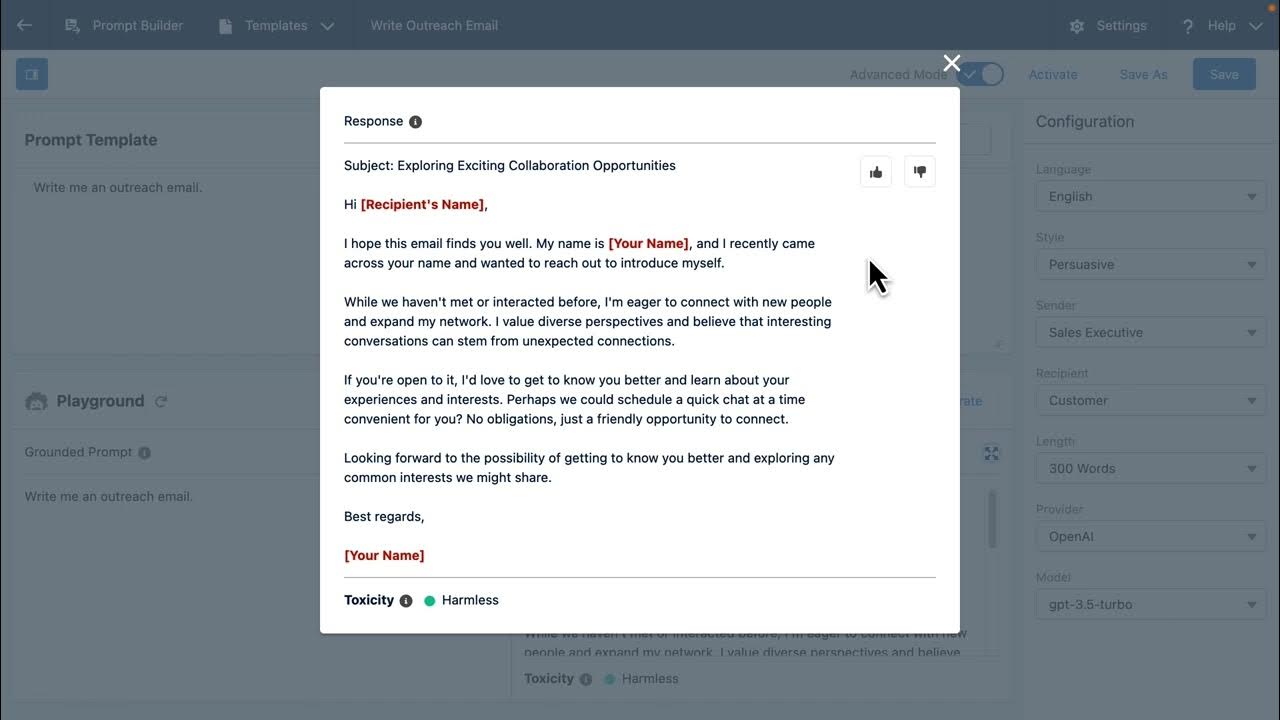Generative AI and Academic Integrity at Texas A&M University
Summary
TLDRThis video script addresses the use of generative AI in academic settings, cautioning students about potential pitfalls. It explains that generative AI can produce various content but may include inaccuracies. Students are warned against assuming they can use it without detection, as it can violate academic integrity. The script emphasizes the importance of reading syllabi, seeking instructor guidance, and adhering to the Aggie Code of Honor. Unauthorized use of AI can lead to severe academic penalties, including expulsion. The key message is to use generative AI responsibly and with explicit permission.
Takeaways
- 🤖 Generative AI is a technology that can produce various types of content including text, imagery, audio, and synthetic data.
- 🔄 These tools recycle existing ideas and do not create new ones; they may also include inaccuracies and false information.
- ⚠️ Using AI without understanding its limitations can lead to academic integrity violations and is against the core value of integrity.
- 🏫 The Texas A&M University (TAMU) community promotes academic integrity through the Aggie Code of Honor.
- 📚 Instructors at TAMU are proactive in promoting academic integrity and have detailed expectations in syllabi and assignment instructions.
- 👀 It's crucial to read the syllabus and ask instructors for clarification on the use of resources, including generative AI.
- 🚫 Without explicit permission, using AI text generators or synonym generators like Grammarly for assignments is not allowed.
- 📝 Plagiarism is defined as using another's ideas, processes, results, or words without proper credit, which includes the unauthorized use of generative AI.
- 📉 Sanctions for unauthorized use of generative AI can range from academic penalties like failing a course to severe university sanctions like expulsion.
- 💡 Always be responsible in your use of generative AI, credit any use of external resources, and seek guidance from instructors or the University Writing Center if needed.
Q & A
What is generative AI?
-Generative AI is a type of artificial intelligence technology that can produce various types of content including text, imagery, audio, and synthetic data.
Can I use generative AI for my academic work?
-Whether you can use generative AI depends on your instructor's guidelines and the specific assignment's requirements. It's essential to review the syllabus and assignment instructions.
Will anyone know if I've used generative AI?
-Yes, instructors may use tools like Turnitin to check for AI-generated content, and academic integrity policies often require transparency in the use of resources.
Can I get in trouble for using AI in my work?
-Yes, unauthorized use of generative AI can lead to academic sanctions like receiving a zero, grade reductions, failing the course, or even suspension or expulsion from the university.
What are the potential issues with using generative AI?
-Generative AI tools may recycle existing ideas without distinguishing between facts and falsehoods, leading to inaccurate and false information, including fake citations.
Is using generative AI considered cheating?
-Using generative AI without permission or proper citation can be considered cheating and a violation of academic integrity.
What should I do if the syllabus does not clearly state the use of generative AI?
-If the syllabus is unclear, assume that the work should be completed individually without the use of generative AI unless explicitly permitted by the instructor.
How can I ensure I'm using generative AI responsibly?
-Use generative AI responsibly by following your instructor's guidance, crediting the use of any resources, and seeking help from your instructor or the University Writing Center if needed.
What are the consequences of unauthorized use of generative AI at TAMU?
-Consequences at Texas A&M University for unauthorized use of generative AI include academic sanctions like receiving a zero or failing the course, and potential educational or university sanctions like extra requirements or expulsion.
How can I get guidance on using generative AI in my assignments?
-For guidance, consult your instructor, the University Writing Center, or the Aggie Honor System Office for information on academic integrity.
What is the Aggie Code of Honor and how does it relate to generative AI?
-The Aggie Code of Honor is a set of ideals that promote academic integrity within the TAMU community. It relates to generative AI by emphasizing the importance of proper use and citation of all resources, including AI tools.
Outlines

Esta sección está disponible solo para usuarios con suscripción. Por favor, mejora tu plan para acceder a esta parte.
Mejorar ahoraMindmap

Esta sección está disponible solo para usuarios con suscripción. Por favor, mejora tu plan para acceder a esta parte.
Mejorar ahoraKeywords

Esta sección está disponible solo para usuarios con suscripción. Por favor, mejora tu plan para acceder a esta parte.
Mejorar ahoraHighlights

Esta sección está disponible solo para usuarios con suscripción. Por favor, mejora tu plan para acceder a esta parte.
Mejorar ahoraTranscripts

Esta sección está disponible solo para usuarios con suscripción. Por favor, mejora tu plan para acceder a esta parte.
Mejorar ahoraVer Más Videos Relacionados
5.0 / 5 (0 votes)






